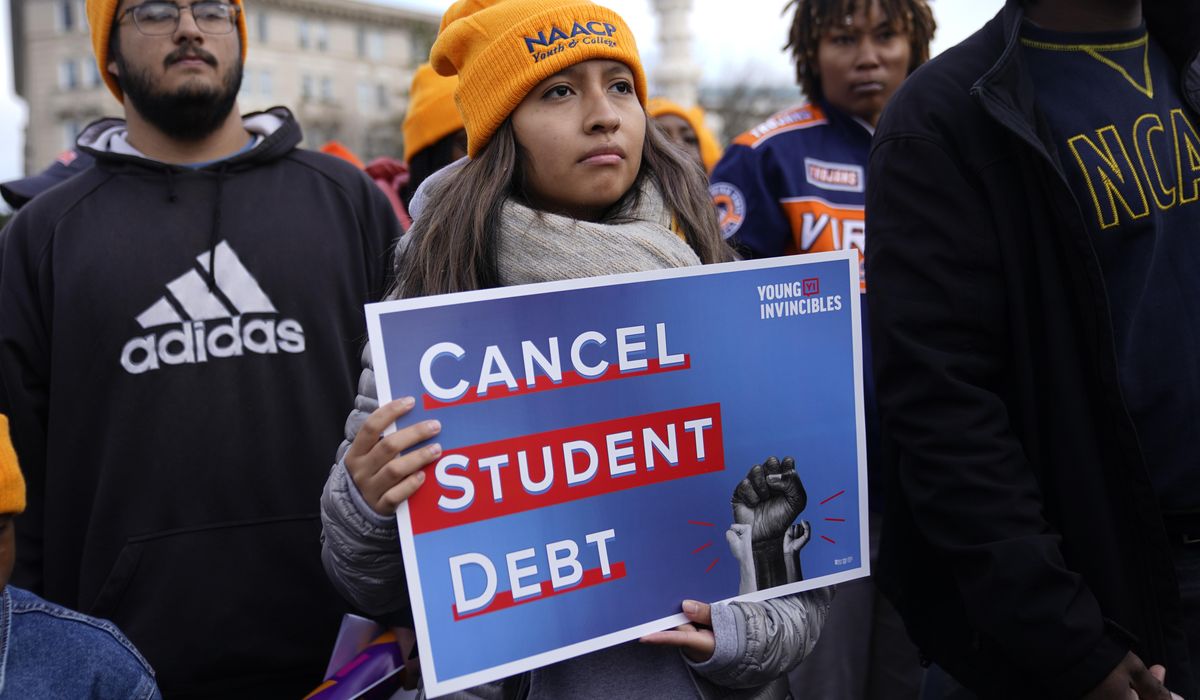


The House Wednesday failed to override President Biden’s veto of a measure that would have stopped him from implementing his student loan forgiveness program.
The 221-206 vote fell far short of the two-thirds needed to override Mr. Biden’s June 7 veto of a measure that would have blocked his unilateral move to cancel up to $20,000 in student loan debt for many borrowers.
The GOP-led House’s failure to override the veto will keep the student loan forgiveness program alive for now, but the matter is likely headed to the Supreme Court thanks to lawsuits objecting to the program that have stalled its implementation so far.
The House and Senate earlier this year passed the measure to block the student loan forgiveness program under the Congressional Review Act, which allows Congress to reverse executive branch rulemaking under certain circumstances.
Two Democrats in the House and two Democrats in the Senate voted with Republicans to block the program, which comes with a $400 billion price tag.
The CRA vote sent a message that there is bipartisan opposition to Biden’s move to forgive student debt, which critics say would unfairly burden taxpayers with college loans that provided them with no benefit.
The vast majority of Democrats back the loan forgiveness program and their support kept Mr. Biden’s veto intact on Wednesday. Only two Democrats voted to override the veto in the House, and there was virtually no prospect the Democratic-controlled Senate would have found the votes to override.
Rep. Bobby Scott, the top Democrat on the House Education and the Workforce Committee, said the measure to block Mr. Biden’s student loan forgiveness program would also end the pause on student loan repayments and the deferral of interest on the loans that has been in place since the COVID-19 pandemic began in early 2020.
The bill, Mr. Scott said, “would trigger a wave of delinquencies and defaults for our most vulnerable borrowers.”
“Intentionally or not, this would create chaos for borrowers and their families,” he said.
Mr. Biden claimed he had the power to forgive student debt and defer interest payments based on a post-9/11 law in 2003 giving the secretary of education the authority to modify the terms of federally-backed student loans in times of war or other national emergency.
Rep. Virginia Foxx, a North Carolina Republican and chair of the Education committee, said the measure would block Mr. Biden from overstepping his authority to cancel student debt, which she said can only be approved by Congress.
Paying for students who “skip out on their loans,” she said, should not be rewarded with a federal bailout.
“That’s not what taxpayers are supposed to do,” Ms. Foxx said. “It’s to help those gain a college education and go out there and be productive citizens — not renege on paying back their loans.”
• Susan Ferrechio can be reached at sferrechio@washingtontimes.com.
